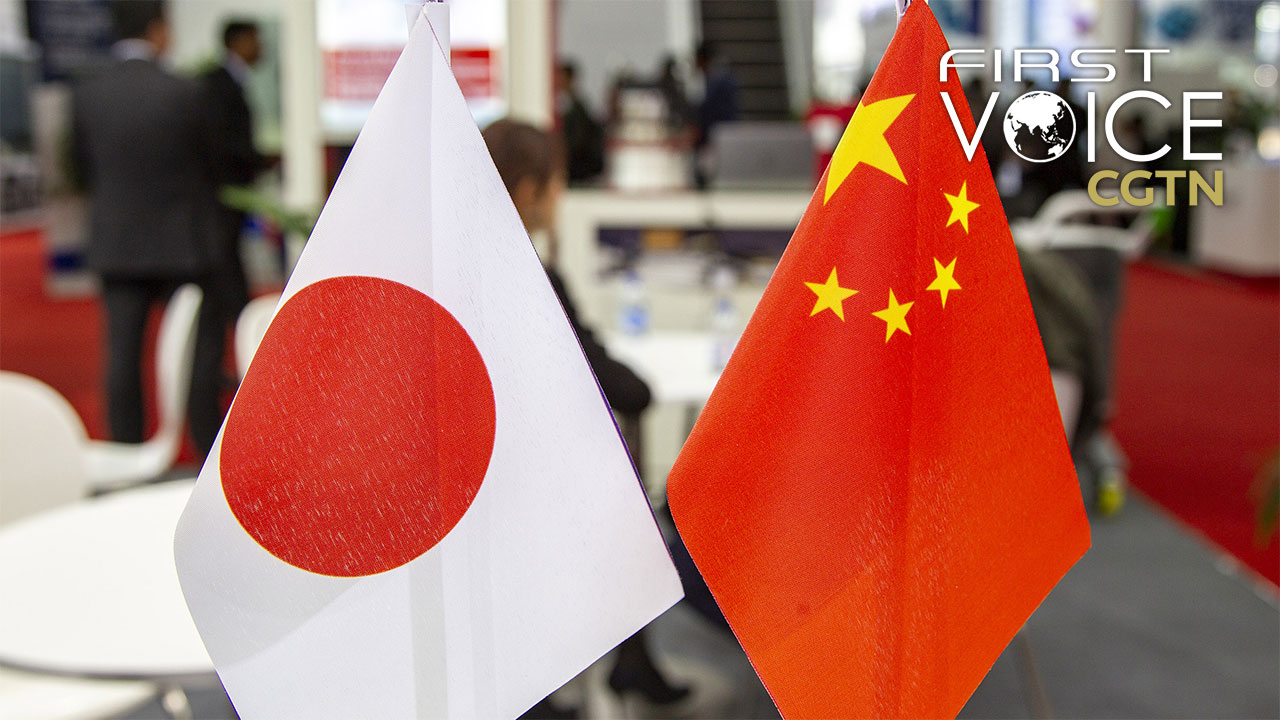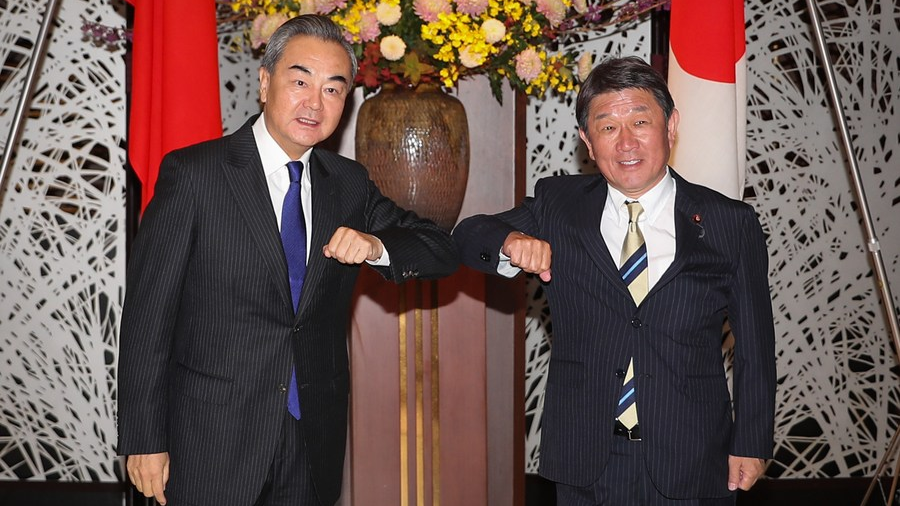
Editor's note: CGTN's First Voice provides instant commentary on breaking stories. The daily column clarifies emerging issues and better defines the news agenda, offering a Chinese perspective on the latest global events.
"Never let a good crisis go to waste," Winston Churchill famously said at the time of World War II. In modern times, Chinese State Councilor and Foreign Minister Wang Yi's visit to Japan and South Korea is such an attempt.
As the COVID-19 is still raging the globe, the consensus made between the world's second and third largest economies to deepen trade ties and de-escalate tensions on the East China Sea is vital for not only the global recovery from the crisis, but also the long-term prosperity in the region.
The China-Japan relationship has seen some ups and downs in recent years, especially during Donald Trump's term in the Oval Office. Apart from beefed-up activities in the East China Sea, Tokyo is at the center of the Washington-proposed Quadrilateral Security Dialogue. The Quad, designed to intensify cooperation in the Indo-Pacific, is, in essence, a strategic attempt to stoke geopolitical competition. It is thus widely seen as an anti-China bloc.
Territorial hostilities and Japan's central role in anti-Beijing strategic flux impeded the two economies from an upgrade in trade ties. At the instigation of Trump, the Tokyo government has been dancing to Washington's tune at the costs of relations with Beijing. Tensions in China-Japan ties continued until the COVID-19 pandemic swept across the globe. With global economy sliding into the worst recession since the Great Depression, the crisis with unprecedented scale is a strong reminder that cooperation is a must to survive, recover, and prosper in the era of global integration.
It is in this context that Beijing extended the olive branch to Tokyo. As the first high-level Chinese official to Japan since Prime Minister Yoshihide Suga assumed office in September, Wang's visit "marks the resumption of in-person diplomacy between the two countries," The Japan Times reported.
Apart from resuming business travel via a "business track" program, the two nations agreed to restart a high-level economic dialogue and bring the Regional Comprehensive Economic Partnership (RCEP) accord into force quickly. For this end, the neighbors reached consensus to de-escalate territorial tensions and set up a hotline between militaries by the end of December.

Chinese State Councilor and Foreign Minister Wang Yi (L) bumps elbows with Japanese Foreign Minister Toshimitsu Motegi before their meeting in Tokyo, Japan, November 24, 2020. /Xinhua
Chinese State Councilor and Foreign Minister Wang Yi (L) bumps elbows with Japanese Foreign Minister Toshimitsu Motegi before their meeting in Tokyo, Japan, November 24, 2020. /Xinhua
Without question, as the world struggles to find a way out of an economic conundrum, Japan's decision to shift from its previous approach of allying with the U.S. for the latter's anti-China campaign to consolidating cooperation with Beijing is significant in overcoming the pandemic. The emphasis on cooperation from confrontation is also the right way forward for the region's sustainable growth.
The "business track" program, for instance, is an attempt to balance between the need to contain the virus and to develop the economy. The two countries' determination to facilitate the RCEP, the first time Beijing, Tokyo and Seoul have been in a single free-trade bloc, will help boost exports and reduce the costs for ordinary customers.
Moreover, as China "actively considers" joining the Comprehensive and Progressive Agreement for Trans-Pacific Partnership, the resumption of China-Japan in-person diplomacy may pave the way for Beijing's participation in the pact under Tokyo's presidency next year.
Intensified economic collaborations are not only a prerequisite to a quick recovery from the pandemic, but also a response the Japanese public's calls. According to polls by Genron and the China International Publishing Group, more than half of interviewed Japanese want their government to work toward global cooperation, rather than taking a side in U.S.-China conflicts.
How will the incoming Joe Biden administration react on ties with China in the next four years is too early to conjecture. But whoever is in the Oval Office, the Suga administration has the final say on its foreign policy with China. The two countries' consensus reached in Wang's visit is the first step to sound bilateral ties.
"Never let a good crisis go to waste." The COVID-19 pandemic is the crisis. But it is also an opportunity for Japan to enhance ties with China. Wang has already extended the olive branch. It is time for Japan to react.
Scriptwriter: Liu Jianxi
(If you want to contribute and have specific expertise, please contact us at opinions@cgtn.com.)

